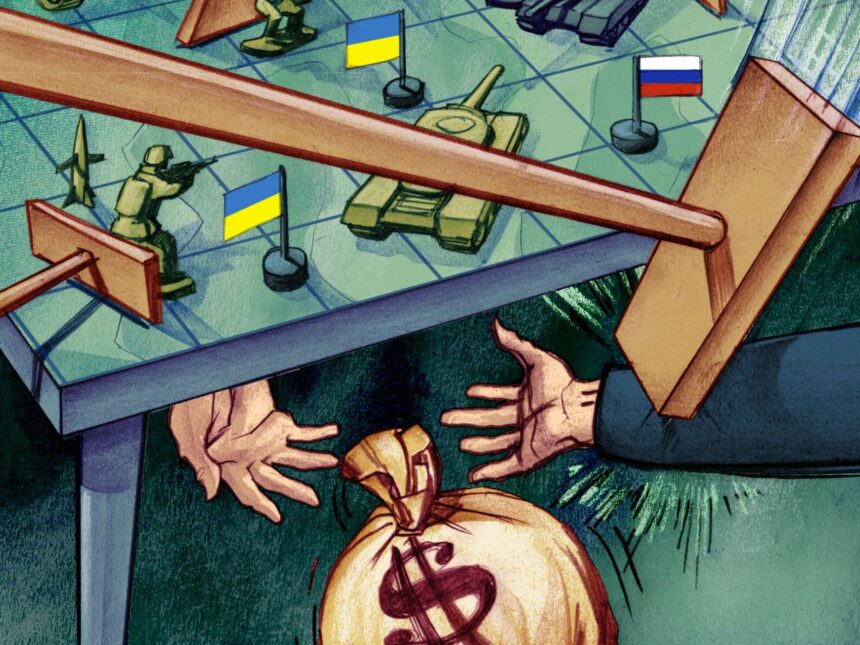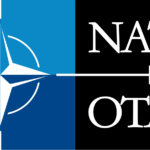Ukraine Is Still Too Corrupt to Join the West
Ukraine’s strategy of defeating Russia by joining the West’s political community and security institutions has been undermined by its continued struggles with corruption, a problem that is still far beyond Western standards. The issue extends to the center of the Ukrainian state. Top judges, politicians, and officials have faced corruption charges, and the Ministry of Defense has been at the heart of many corruption scandals, such as procuring overpriced eggs and winter jackets, buying 100,000 mortar shells that were never delivered, or accepting bribes from men who wanted to escape conscription.
Transparency International ranked Ukraine at 104 out of 180 countries in the corruption index for 2023, far worse than members of the European Union whom Ukraine wishes to join as an equal. Denmark was ranked as the least corrupt, Germany at No. 9, Estonia at No. 12, and France at No. 20.
Over the past decade, Ukraine made some progress in correcting its corruption problem. Yet according to Foreign Policy’s conversations with key Ukrainian, U.S., and European officials, it has a lot more to accomplish before it can fully enter the Western community and receive the support that it desires.
The EU has been assisting Ukraine in carrying out essential reforms since 2014, when Ukrainians carried out large-scale protests against a pro-Russia president. That year, Ukrainians vociferously expressed their desire to fully embrace Europe and signed an association agreement with the European Union under then-President Petro Poroshenko, choosing to “pursue economic, judicial, and financial reforms.”
NATO has been assisting with reforms in Ukraine’s armed forces and defense institutions. Since 2016, it has organized support through a Comprehensive Assistance Package, which included a wide range of capacity-building programs to help “Ukraine transition from Soviet-era to NATO standards.”
But some in the Ukrainian establishment suggest that reforms were just “an excuse” to hide the political reticence among some member states who fear becoming a party to the war. “The issue that stops Ukraine’s inclusion in NATO is not the absence of reforms, but the fear in U.S. and Germany of the so-called Russian escalation,” Alina Frolova, a former Ukrainian deputy minister of defense of Ukraine told Foreign Policy over the phone from Kyiv.
A senior official at the U.S. Defense Department spoke to Foreign Policy on the condition of anonymity and admitted that political considerations were a factor, but said that corruption, lack of civilian oversight over the armed forces, and limited transparency in government institutions was a major hindrance.
“There has been particular concern around defense procurement,” the official said. “There have been cases where we have seen favorable awarding of contracts to people close to certain leaders.”
Ukraine’s 2024 adapted Annual National Program is the key document calling for reforms in defense, law enforcement, and governance. One of the top goals of the plan is to reform Ukraine’s defense procurement system in line with Euro-Atlantic procedures and practices. The many scandals in the defense sector shook not only the confidence of Ukraine’s citizens, fighting for their country, but also Western supporters and especially NATO allies, who have sent 99 percent of all military aid toward Ukraine’s war effort.
Foreign Policy has learned that NATO experts have helped Ukraine establish institutional tools to check corruption in defense procurement even as it fights Russia. Ukraine has formed two new procurement agencies—the State Logistics Operator (or DOT) and Defense Procurement Agency (or DPA)—which are expected to cut down corruption. While the DOT will procure nonlethal items, such as food, blankets, shoes, and other sundry items required by the armed forces, the DPA will procure armaments.
The creation of two separate agencies is due to the secrecy involved in information related to arms purchases in the middle of a war, which, if public, could aid the adversary in drawing battle plans. NATO expects that the two agencies will be merged once the war is over.
Yaroslav Yurchyshyn, a member of the Ukrainian parliament and the deputy head of the parliamentary anti-corruption committee, indicated that the agencies will nonetheless curtail the power of the Ministry of Defense, which until recently performed all the functions now assigned to the new bodies.
“It established the procurement rules, calculated the approximate cost of what needs to be purchased in accordance with the requests of the general staff, and held auctions. Now, these powers are divided,” he told Foreign Policy. “This will allow the ministry, first of all, to avoid corruption risks.”
Ukrainian Defense Minister Rustem Umerov, who was appointed in September 2023 to replace Oleksii Reznikov, said in a speech given in December that the new system was “built according to international standards and NATO principles in coordination with our international partners.”
Yurchyshyn said that Ukraine has reinstated the obligation for public servants to declare their assets and make that information publicly accessible. (The requirement had been suspended when Russia launched its full-scale invasion in February 2022.) However, that measure doesn’t include all members of the armed forces, barring those “who work in more or less peaceful cities” Yurchyshyn added.
In collaboration with the U.S. Agency for International Development (USAID), Ukraine has digitized the interface between government and citizens. Diia—an e-government app and digital platform—“enables Ukrainians to engage with their government online in a one-stop-shop,” with services such as applying for benefits, paying taxes, registering and running businesses, and accessing aid for Ukrainians displaced by war. USAID described Diia as “the gold standard in e-government” and noted that Ukraine is working to share the technology with other nations.
Although the changes mentioned above are remarkable, they are seen as baby steps in Ukraine’s long journey to one day join the EU and NATO. The Annual National Plan also calls for the strengthening of democratic control as well as greater oversight of the armed forces and the wider security and defense sectors. Danylo Mokryk, a journalist with the Kyiv Independent, said that the president has the political oversight over the Ministry of Defence, while one of the four major anti-corruption bodies in the country—the National Anti-Corruption Bureau—has the legal oversight. But Mokryk argued that neither is sufficient.
“Political oversight by the president is quite soft,” he said, “the legal oversight by the Anti-Corruption Bureau, I would say, it is limited,” he told Foreign Policy over the phone. “For instance, there have been proceedings against former deputy ministers and procurement firms, but the higher-ups are just asked to step down—there have been no criminal proceedings against the former defense minister,” he said in reference to Reznikov, who stepped down after the Ministry of Defense was found at the center of alleged major corruption scandals.
Four agencies in Ukraine are looking into corruption among the central government authorities, including in the armed forces. But activists have said that there are concerns over independence of at least two of those agencies. For instance, “the head of the anti-corruption bureau seems to be quite loyal to the government,” Mokryk added.
Even when it comes to reforming the internal law enforcement agencies, the government is moving slower than the EU or even the Ukrainian people expect. The country’s Cabinet of Ministers hasn’t yet approved the action plan to reform the law enforcement agencies that was drafted by Ukrainian officials and representatives of the European Union Advisory Mission.
“The action plan is still expected to be approved by the Cabinet of Ministers of Ukraine,” Yurchyshyn said. “The Ministry of Internal Affairs must submit the document for approval to the Cabinet of Ministers of Ukraine. The implementation will start after the approval, so as for now, no steps have been done yet.”
Another major criterion for accession to the EU is an independent judiciary. In May last year, Ukrainian prosecutors detained the head of the country’s Supreme Court for allegedly taking a bribe worth nearly $3 million. And in 2022, the Kyiv district administrative court, which had the power to consider lawsuits against central public authorities, was liquidated after its judges were found to have abused power.
A new court to handle cases against central government bodies has not been established yet, Olena Halushka, the head of international relations at a nongovernmental organization called the Kyiv Anti-Corruption Action Centre, told Foreign Policy. Moreover, another activist told FP that many in the judiciary are resisting stricter vetting procedures.
In the key findings the European Commission’s 2023 report on Ukraine, the commission noted that a “new administrative court to handle cases involving the central government bodies and staffed by properly vetted judges needs to be established.”
Experts also believe that in the defense sphere, Ukraine can do much more. One of the issues in Ukrainian defense procurement has been the competing demand for the same supplies—lethal or nonlethal—from different Ukrainian agencies, which experts believe allows the suppliers to increase the prices. NATO has suggested that Ukraine must create a registry of approved suppliers to avoid being dragged into deals that could be corrupted or potentially go unfulfilled.
“Ukraine is on an upward trajectory,” said the senior U.S. Defense Department official—but the same official also added that “it will not become a member of NATO without taking these reforms seriously.”
By Anchal Vohra
Source: Foreign Policy







